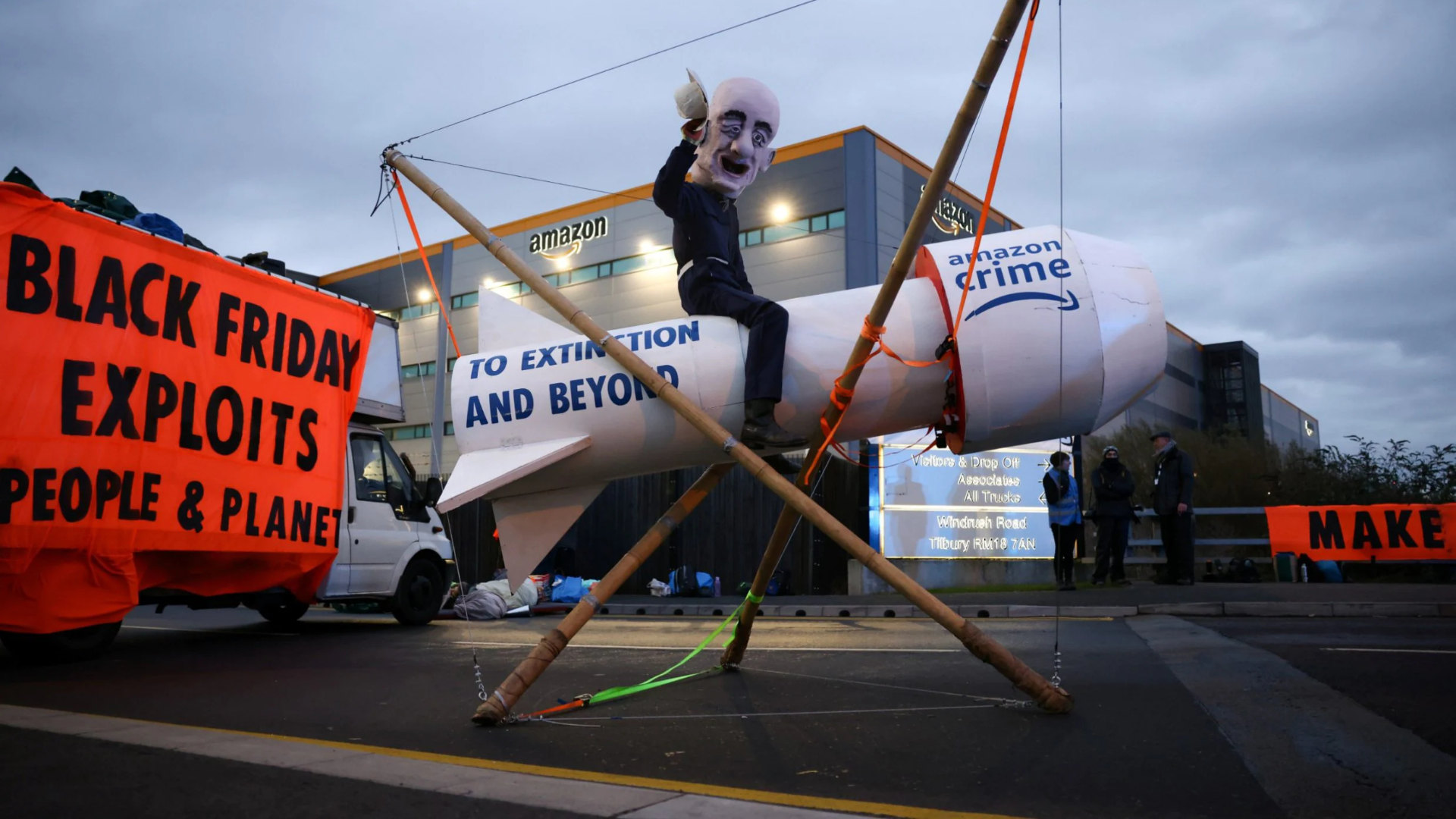The not-so-holy grail of online shopping, Amazon, will contribute massively to this figure, given that their annual carbon footprint is bigger than that of entire nations, for example, Switzerland’s.
The website’s mission to sell and quickly deliver cheap products saw Amazon emit 44.4 million metric tonnes of carbon dioxide in 2018 – the equivalent of 215,778 return flights from London to Sydney.
To raise awareness, activist group Extinction Rebellion has blockaded roads outside of Amazon warehouses across Europe – specifically in the UK, Germany, and The Netherlands.
In the Britain, warehouses responsible for up to 50 percent of national Amazon deliveries were targeted, preventing thousands of shipments from going out in a timely manner.
But the motivation behind Extinction Rebellions protests lies not just in disrupting Amazon’s environmentally destructive operations. It is also rooted in taking a stand against the company’s code of ethics.
It is widely known (and sadly, accepted) that Amazon treats its employees poorly. In just the last three years, over 1,000 ambulances were called to the company’s UK-based depots.
Workers from hubs world have spoken out about crowded break times, abruptly cancelled shifts, insufficient safety regulations, and Amazon’s total disregard for worker illnesses and disabilities.
On top of this, the immense pressure to hit shipment targets is worsened by a lack of humanity within management, with workers being constantly monitored by computer algorithms and cameras.
As such, Extinction Rebellions main message when protesting outside European depots is to promote their new campaign: ‘Make Amazon Pay’.
The activists are calling for the public to cancel their Prime memberships and to stop purchasing from Amazon altogether.
As we know, the concept of Black Friday is rooted in our modern obsession with the overconsumption of goods: buying things we don’t need and that we otherwise couldn’t afford without major price drops.
Amazon’s culture is shaped around a similar concept – getting what we want, when we want it, like, now. This is simply unachievable without subjecting the planet and workers to unsustainable practices.
A former worker for Newcastle’s Amazon hub said it best: ‘[The company’s] business model has enabled massive growth. As its empire grows, so does its exploitation.’
Extinction Rebellion have set an ambitious goal to dismantle one of the world’s most prolific shopping websites, but activists from the group have promised that they will continue their campaign until something changes.
Speaking from outside an Amazon warehouse, the group stated, ‘we are only just beginning.’





















